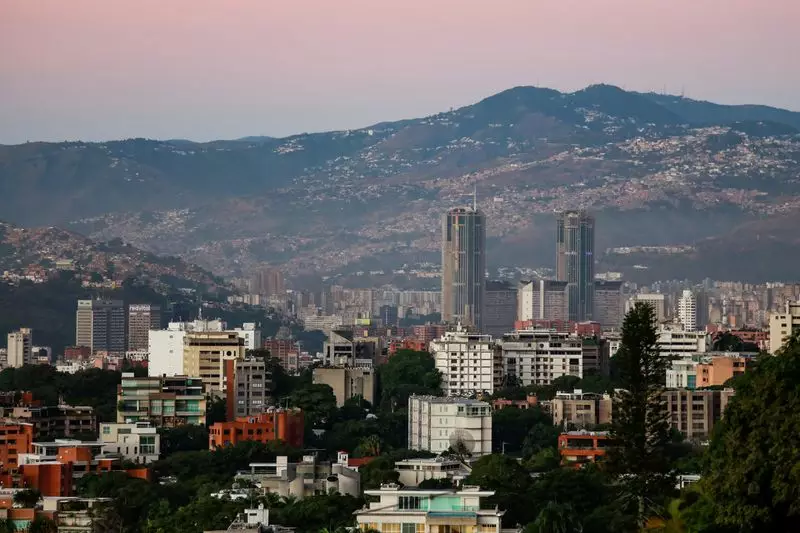The geopolitical situation surrounding Venezuela continues to escalate, especially with the U.S. government’s recent imposition of sanctions on multiple Venezuelan officials. As President Nicolás Maduro’s inauguration for a contentious third term approaches, the international community watches closely, noting significant developments that may influence Venezuela’s future.
On a dramatic Friday morning, the Biden administration publicly reiterated its disapproval of Maduro’s regime by sanctioning eight officials linked to his government. The sanctions were accompanied by an increased reward—rising from $15 million to $25 million—offered for information leading to Maduro’s arrest. This action is indicative of the U.S.’s strategy to exert pressure on what it considers a regime comprising oppressive leadership and illegitimate claims to power.
The sanctioned officials include key figures in Venezuela’s political and military apparatus, such as Hector Obregon, the fresh head of the state oil company PDVSA, and Ramon Velasquez, the transportation minister. Alongside American sanctions, the United Kingdom and the European Union also announced penalties against 15 Venezuelan officials, highlighting a united front among Western nations against Maduro’s government. Tracks of Canadian sanctions further amplify this multi-national effort, showcasing an increasingly coordinated strategy to address what they describe as a humanitarian crisis exacerbated by Maduro’s governance.
Venezuelan leadership, however, has dismissed these sanctions as illegitimate. In his inauguration speech, Maduro framed the U.S. government’s actions as retaliatory moves devoid of any legal basis. He characterized these measures as part of an “economic war” aimed at destabilizing Venezuela, insisting that the country has shown resilience in the face of international pressure. Maduro’s narrative aligns with his long-held position that sanctions have hindered Venezuela’s ability to recover economically, while framing the opposition as engaging in conspiracies against his rule.
His assertion of Venezuela’s resilience despite repeated sanctions reflects a fundamental theme of his administration—a portrayal of strength in adversity. This narrative is carefully crafted to bolster domestic support and draw attention away from failing economic indicators often attributed to governmental mismanagement and corruption.
Allegations of Electoral Malfeasance
The controversy surrounding last year’s presidential elections—which Maduro’s government claims he won amidst widespread accusations of electoral fraud—establishes the backdrop for the current crisis. The Venezuelan electoral authority, in conjunction with the country’s judiciary, stands firm in its assertion of Maduro’s legitimacy, yet details concerning voter turnout and the credibility of the electoral process remain murky.
On the other hand, the Venezuelan opposition-led by figures such as Edmundo Gonzalez, who has been characterized by the U.S. and allied governments as the genuine victor of the election, contests these claims vehemently. Their accusations center on a lack of transparency and widespread manipulation that marred the electoral process. This competing narrative has gained traction among various international observers and governments, magnifying the crisis’s complexity. Moreover, the alleged threat of arrest against Gonzalez should he return from exile highlights the tense political atmosphere and the lengths to which Maduro’s government may go to silence dissent.
The Implications of U.S. Policy Shifts
As President Joe Biden’s administration approaches its twilight, uncertainty looms regarding the future direction of U.S. policy towards Venezuela. The culmination of sanctions under the Biden presidency serves as a tactical continuation of the strategy employed during Donald Trump’s tenure. Trump’s “maximum pressure” campaign had already placed substantial restrictions on the Venezuelan economy, particularly its oil sector—an area where future U.S. involvement remains unclear amid rising domestic energy needs.
Biden’s recent reinstatement of sanctions followed a brief period of thawing relations where he had initially rolled back some restrictions based on Maduro’s electoral commitments. The need for a cohesive and unwavering strategy stands out as pivotal, especially when juxtaposed against the backdrop of rising immigration from Venezuela—a prominent concern for any incoming administration.
Looking Ahead: The Road to Stability
As the political landscape in Venezuela becomes increasingly polarized, the international community’s stance—together with internal opposition movements—will significantly determine the path forward. With Maduro holding tightly to power amid rising hostilities and economic despair, the ability of external forces to push for a genuine democratic process remains to be seen.
The U.S. and its allies must tread carefully, weighing the implications of sanctions against potential diplomatic avenues that could foster dialogue and ultimately lead to a resolution satisfactory to both the Venezuelan populace and the international community. As this crisis continues to evolve, all eyes will be on the potential leadership changes that may alter the course of Venezuela’s intricate political saga.

